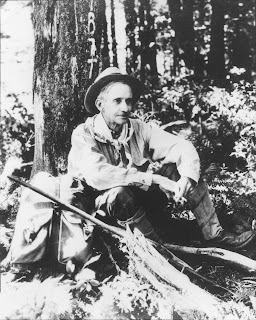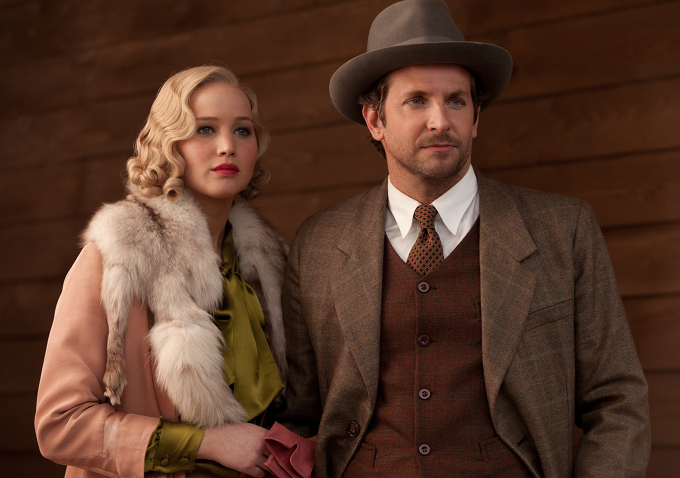Describe your latest book/project/work. Something Rich and Strange is a collection of selected stories, including three stories previously unpublished in book form. Introduce one other author you think people should read, and suggest a good book with which to start. Donald Harington is as underrated as any America writer I know of, and I'd suggest [...]
Viewing: Blog Posts Tagged with: Ron Rash, Most Recent at Top [Help]
Results 1 - 5 of 5
Blog: PowellsBooks.BLOG (Login to Add to MyJacketFlap)
JacketFlap tags: Literature, Q&A, Les Murray, Ron Rash, Kate Grenville, Richard Flanagan, Tim Winton, Janette Turner Hospital, Patrick White, Donald Harington, Add a tag
Blog: BOOKFINDS (Login to Add to MyJacketFlap)
JacketFlap tags: ron rash, serena, bradley cooper, jennifer lawrence, Movie News, Add a tag
According to The Playlist, filming has started on the Depression-era drama “Serena” with Susanne Bier at the helm, and a first look at Jennifer Lawrence and her co-star Bradley Cooper has emerged. Based on the novel by Ron Rash, the story centers on a man named George Pemberton (Cooper) and his new bride, Serena (Lawrence), as they set out to depression-era North Carolina to create a timber empire. Their successful, ruthless reign in the mountains becomes complicated when Serena discovers her inability to bear children, setting her on a vengeful path against George’s illegitimate son. Fun fact: Darren Aronofsky and Angelina Jolie were once circling this, but that never came to pass.
Production is underway in Prague.
Blog: Beth Kephart Books (Login to Add to MyJacketFlap)
JacketFlap tags: Horace Kephart, Ron Rash, Great Smoky Mountains National Park, George Ellison, Our Southern Highlands, Smoky Mountain Magic, Add a tag
Every once in a while I get a phone call from a southern gentleman. His name is George Ellison, and he has been my great-grandfather's biographer since 1967, when he was asked to write the introduction to Horace Kephart's Appalachian classic, Our Southern Highlanders.
A brilliant librarian, a devoted outdoorsman, a conflicted husband, and the father of the six children pictured here, Kephart had retreated to the Carolinas following a mysterious breakdown. There he outposted in a cabin, read and reflected, fished and hunted, and began to write about the people he met and the things that happened to him. He had one blue eye and one brown one. He was a force behind the creation of the Great Smoky Mountains National Park, as was recently documented in the newest Ken Burns film. His life story has inspired and goaded authors, artists, and musicians; brought me unexpected and long-sustained friendships; and been transformed in the service of such novels as Ron Rash's Serena, where Kephart appears (unfortunately) as a mere cartoon version of himself. Last year, Kephart's own novel, Smoky Mountain Magic, was re-released by the great Smoky Mountains Association, with prefatory material prepared by my cousin, Libby Kephart, as well as George Ellison. Soon, Kephart's Camping and Woodcraft will be re-released, and once again, George Ellison has been at work on an introduction that incorporates interesting new material about my great-grandfather's time in St. Louis, where he reigned over one of the greatest libraries in the land.
This past week, I was again talking to George, who wanted to share with me an early version of his newest work. It's beautiful, as it always is—respectful to both the facts and to Kephart himself, and written with more than a touch of poetry. I wondered how George could keep going, more than forty years on, finding the new and finding new ways to phrase it about a single man who refused, in his own lifetime, to do much explaining about or for himself. In an e-mail, George wrote the following—words that testify to the kind of man he is, words that make me grateful that one small part of my own history has been entrusted to such a worthy soul:
It's a terrific story from a literary point of view . . . and it has become somewhat personal now that I have grown close to various family members. My job has always been to help people appreciate the unlikely accomplishments that emerged from what were, at times, chaotic situations: Camping and Woodcraft; Our Southern Highlanders, Smoky Mountain Magic, and a role in the founding of a national park.
Blog: Beth Kephart Books (Login to Add to MyJacketFlap)
JacketFlap tags: Serena, Karl Brown, Our Southern Highlanders, Horace Kephart, Ron Rash, Add a tag
 I have just now finished reading Ron Rash's novel, Serena, a book I referenced yesterday in this blog, and I feel less anxious about the whole matter now. To begin with, as a few other critics have noted, it's not entirely clear what Rash is up to here, for this is a book full of extreme and, therefore, nearly one-dimensional characters.
I have just now finished reading Ron Rash's novel, Serena, a book I referenced yesterday in this blog, and I feel less anxious about the whole matter now. To begin with, as a few other critics have noted, it's not entirely clear what Rash is up to here, for this is a book full of extreme and, therefore, nearly one-dimensional characters.
Take the title character, Serena, a Lady MacBeth (save that she suffers no guilt), who rides a white Arabian horse with a snake-fetching eagle perched on one arm and a one-handed ruffian at her side; she's married Pemberton following a three-month courtship and now rules, with him, his logging lands in the Great Smoky Mountains. Pemberton, for his part, climbs off a train in the first pages of the book and slays the father of the young teen he impregnated before marrying Serena. Thinks nothing of it. Never looks back. Next plot point. Next murder.
Against this backdrop is the making of the Great Smoky Mountains National Park, and hence the introduction of my great-grandfather, who is referred to, by Rash's characters, as "a Harvard man turned Natty Bumppo," as "stubborn and cranky," as "overly fond of the bottle and not nearly the saint the newspapers and politicians make of him," as "the hermit fellow," and in one scene, "Kephart sat beside the newspaperman, looking badly hungover, his eyes bloodshot, hair uncombed. He huddled inside a frayed mackinaw, a pair of soggy boots in his lap. Kephart stared straight ahead, no doubt envying his companion's expensive wool Ultser overcoat."
Kephart's work on behalf of the making of the national park is also cited here, and toward the end of Rash's novel, there's a touching scene in which Kephart reaches out to the young teen who has born Pemberton's son. But Kephart as a person, even a fictional one, never fully emerges, and having read Rash's book through, I'm not sure that it was the author's intention to create the sort of nuanced personalities that Waugh, for example, enlivens in Brideshead. Perhaps Rash's intention was to write more in the manner of myth, while using people who actually lived, on land that stands today, as integral to his tale.
(In his acknowledgments, Rash writes: "Although some of the minor characters in this novel actually existed historically, they are fictional representations." Which I squinted at, didn't entirely comprehend.)
When one sees one's ancestor in a book, the hope, of course, is for a fully nuanced account, even if that character is, as Kephart is here, a secondary one. It's a hope fueled by ego, perhaps, or for a desire to set things right on the page, for Kephart was so many things to so many people, and I've often struggled to understand him myself in essays on, for example, his book, Our Southern Highlanders (a book Rash clearly draws from but never cites in the acknowledgments). For those of you who may be reading Rash's book and may be wondering about this enigmatic man, Kephart, I'd like to share with you this passage from the writings of one Karl Brown, who interviewed Kephart during the course of a movie shot in 1927 in Graham County:
“He was a small man, something below medium height, but chunky and intrinsically formidable. But the one feature that distinguished him from all other human beings I have ever met was that one of his eyes was a bright blue while the other was a deep brown. …
Kephart leaned back in his creaky-springed swivel chair and said, as a sort of cue, ‘Well?’ … I decided then and there that this was no man to fool with. There was something so direct and honest in his bearing that he reminded me of others of his kind … and so, even though I knew in advance it would be an uphill job, I decided to be as honest as I could manage, considering that I was somewhat out of practice …
Kephart advised Brown, “to be a gentleman and you’ll be treated like one” and that “honesty is not only the best policy: it is the only one.”
And here, for the record, is Kephart himself, in his own melodious, soulful, fully three-dimensional voice:
When I went south into the mountains I was seeking a Back of Beyond. This for more reasons than one. With an inborn taste for the wild and romantic, I yearned for a strange land and a people that had the charm of originality. Again, I had a passion for early American history; and in Far Appalachia, it seemed that I might realize the past in the present, seeing with my own eyes what life must have been to my pioneer ancestors of a century or two ago. Besides, I wanted to enjoy a free life in the open air, the thrill of exploring new ground, the joys of the chase, and the man’s game of matching my woodcraft against the forces of nature, with no help from servants or hired guides.
Blog: Beth Kephart Books (Login to Add to MyJacketFlap)
JacketFlap tags: Our Southern Highlanders, Horace Kephart, Ron Rash, Great Smoky Mountains, Serena, Add a tag
 And so I finished reading Brideshead Revisited, and I stand, with so many of you, in awe of it: the miracle of its structure, its graceful folding in and out of time and perspective, its flawless sentences and interesting words. A masterpiece, as countless many before me have said.
And so I finished reading Brideshead Revisited, and I stand, with so many of you, in awe of it: the miracle of its structure, its graceful folding in and out of time and perspective, its flawless sentences and interesting words. A masterpiece, as countless many before me have said.
I turned, then, to Serena, the new Ron Rash novel that is getting such play on best of the year lists, and what do I find but a fictional recreation of my great-grandfather, Horace Kephart, of whom I have written in this blog before. A troubled soul, a brilliant librarian, who left his wife and children following a calamitous breakdown and who never truly returned to them. Went off, instead, to the Great Smoky Mountains, where he studied the people and wrote books about them, where he refined his campcraft and wrote books on that, too, where he became a mayor, where he loved nature with supreme erudition. Toward the end of his life, my great-grandfather fought with others to create the Great Smoky Mountains National Park, and whatever else you might wish to say or think about him, he helped save part of the world for the rest of us.
In any case, Kephart is here in Rash's book, and from what I can tell, Rash has not made a pretty figure of him—attributed thoughts and deeds to him that might be hard for a Kephart such as myself to swallow. An interesting choice, I think, to use Kephart's name and work while fictionalizing his character.
But I'll read on and report more fully when I'm done.






Both men sound fascinating. I like the quiet answer to your question about the work becoming more personal as more family members get involved and I expect this applies to many biographers, some of whom work for years, even decades, on one volume. What starts as a quest for knowledge may become a way of broadening a circle of family and friends, some of whom still live on earth. It's noble work.
Beth -
“My job has always been to help people appreciate the unlikely accomplishments that emerged from what were, at times, chaotic situations” - what a sentence! A giant!
Grete
I don't think there is a single person who understands Horace Kephart quite like George Ellison. I wish I could attend the Kephart event in Bryson City next weekend, but my actual job calls.
This is just fascinating and I love the photo!
I didn't know there was going to be another edition of "Camping and Woodcraft" -- I will have to look for it. Mr. BFR has an older copy and is a fan of that Kephart. Your name is well known in this house.